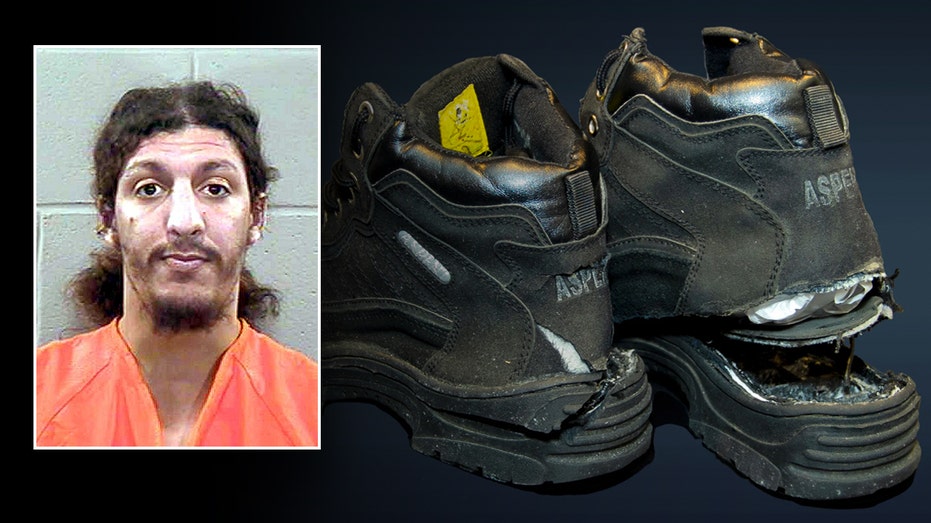Just months after the Sept. 11, 2001, terror attacks, an al Qaeda supporter snuck onto American Airlines Flight 63 from Paris to Miami with explosives packed into his shoes, but his failed attempt to detonate spared the lives of nearly 200 people and sent him to prison for the rest of his life.
According to the FBI, the 10 ounces of homemade explosives in his shoes were enough to blow a hole in the side of the plane and kill everyone on board.
“Shoe Bomber” Richard Reid, the 50-year-old British citizen who trained with the terror group in Pakistan and Afghanistan, is serving a life prison sentence at the U.S. Penitentiary in Florence, Colorado.
NEW YORK ANNOUNCES 2 9/11 VICTIMS IDENTIFIED 22 YEARS AFTER ATTACK
In 2006, the Transportation Security Administration implemented a shoe-removal rule at its airport checkpoints due to “intelligence pointing to a continuing threat.”
In October, FBI Director Christopher Wray told Congress “terror threats have elevated” amid protests and debate over the ongoing war between Israel and the Hamas terror group, and he warned that future lone wolf attacks remain a threat.
“The reality is that the terrorism threat has been elevated throughout 2023, but the ongoing war in the Middle East has raised the threat of an attack against Americans in the United States to a whole other level,” Wray said.
Reid, who also used the aliases Abdul-Raheem and Abu Ibrahim Abdul Raheem, admitted to the 2001 plot and his allegiance to al Qaeda’s then-leader, Osama bin Laden, in court.
After Reid reached down to try and light a fuse in his shoes on Dec. 22, 2001, fellow passengers tied him up and the pilot made an emergency landing in Boston, where he was arrested.
Then-Attorney General John Ashcroft praised the passengers and crew for thwarting the attack.
TERROR SUSPECT ACCUSED IN TEACHER STABBING SWORE ALLEGIANCE TO ISIS BEFORE KNIFING, PROSECUTOR SAYS
A flight attendant confronted Reid when he lit the match. Passengers jumped in to help, grabbing him by the arms and legs and strapping him down with belts “and whatever was available.” A doctor on board sedated the terrorist.
“On Flight 63, for a very few minutes at least, every passenger was vigilant and alert, every passenger an air marshal,” Ashcroft said during a news briefing to announce Reid’s indictment on Jan. 16, 2002. “And as a result, 197 people on board that flight made it to the ground safely.”
TSA INTERCEPTED MORE THAN 1,500 FIREARMS AT AIRPORTS IN FIRST 3 MONTHS OF 2023
Reid smirked in court, laughed at prosecutors and said he didn’t recognize the U.S. criminal justice system before pleading guilty on Oct. 4, 2002. He received multiple life sentences plus another 110 years in prison without the possibility of parole, according to court records.
“I’m an enemy of your country, and I don’t care,” he said before his sentencing.
Despite that, he tried appealing his case and wrote to a federal court clerk in 2021 to inquire about the possibility of a sentence reduction.
Because he was nearly 20 years past the statute of limitations for such a request, it failed.
In 2015, the criminologist Kim Mehlman-Orozco shared some of her correspondence with Reid with NBC News and The Telegraph.
In a letter to her from prison, he said he had “some tactical regrets” over his failure to detonate the bomb and had no remorse for the victims of a 2015 terrorist attack on the French satirical newspaper Charlie Hebdo that left 12 dead.
The Associated Press contributed to this report.
























